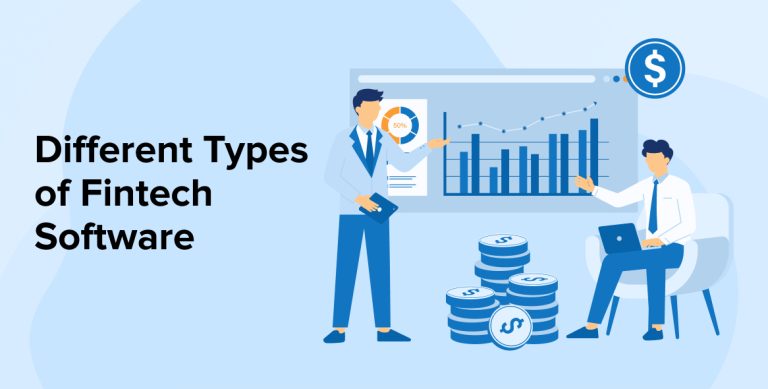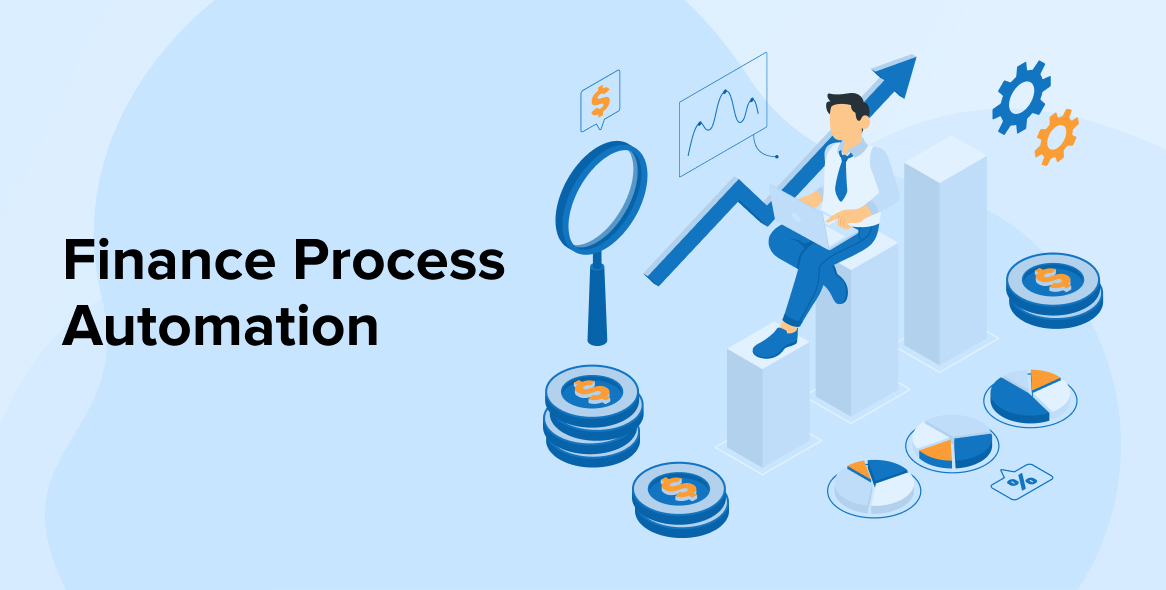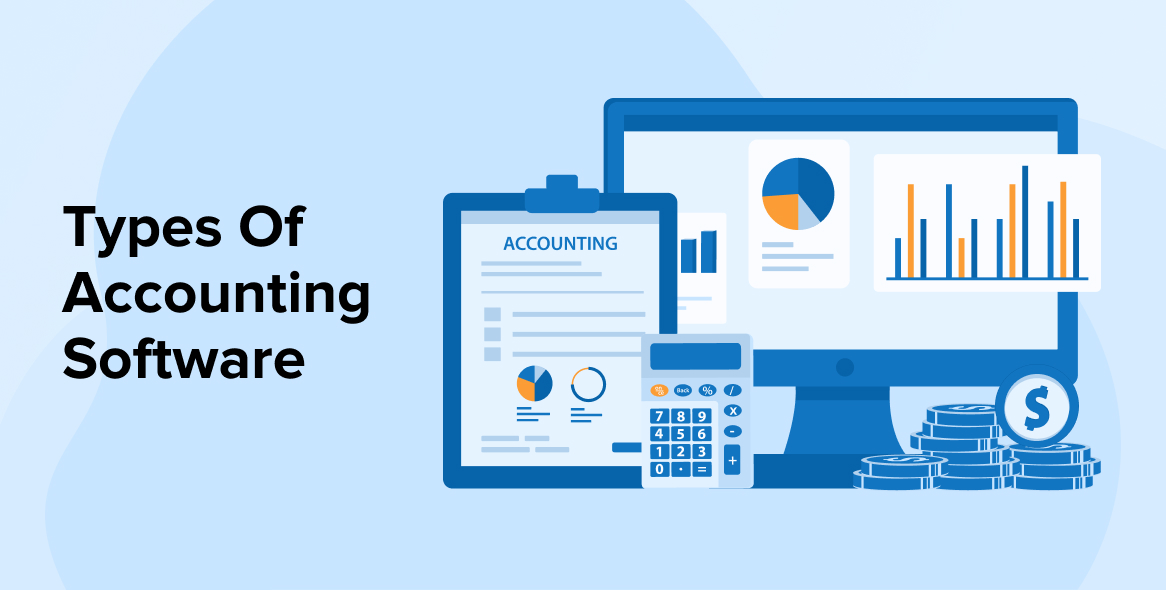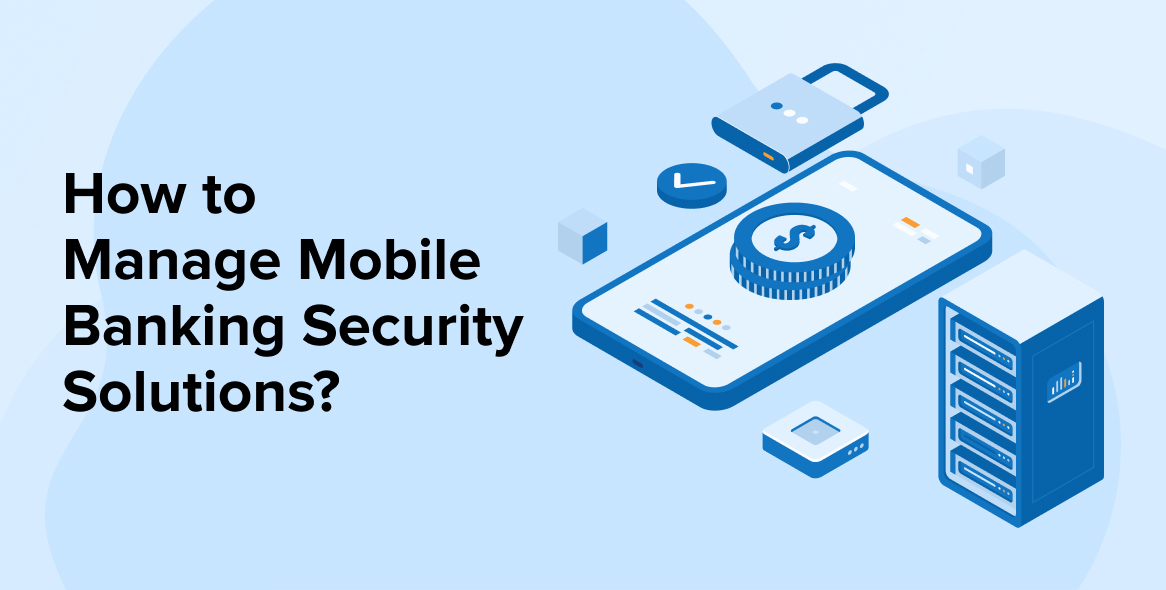
If you think fintech is the latest buzzword, then you might need to fast-forward your clocks because Fintech has been here for years now. There has been constant innovation in this sector and most companies are leveraging financial software development services for their businesses. The world of fintech has innovated with so many digital technologies such as Digital currencies, Robo-advisors, and contactless payments. So, to give businesses clarity, we brought into focus the types of fintech software that every business must know.
People want transactions to be quick, simple, and secure. As a result, forward-thinking financial institutions keep on attempting to attract and keep clients through digitizing data. In addition, Fintech uses blockchain as a technology that makes the developed application secure and efficient to use. The only question here is how do businesses develop software solutions on their own? Or if they were aware of all types of Fintech software that could benefit them in the longer run. So, let us explore more the different types of fintech software.
1. Types of Fintech Software
The complete Fintech is dependent on how it takes advantage of next-generation technologies to make financial transactions easier. The fintech business has a variety of software application types to offer and can be used in all types of industries. When Fintech wasn’t in place, businesses needed to visit a physical location, wait in lines, participate in lengthy talks with staff, and do several other financial tasks. But now with the inducement of technology in the financial sector, you are capable of performing all these actions with just a few mouse clicks.
There are different types of technology for example computerized accounting systems in the financial sector and software applications businesses can build such as
1.1 Commercial Applications
For enterprise-grade applications, they build software that is commercially beneficial for their business. Such commercial applications can be lending apps, or loan lending commercial applications, specific banking, and financial application, insurance-based apps, internal apps for managing insurance agencies, insurance client management, and other types of commercial apps. Let’s delve deeper into each category to understand what each one offer.
Loan lending commercial applications
This type of fintech software collects and analyzes data on clients in order to give financial institutions a comprehensive picture of their creditworthiness and potential hazards. These software kinds can assist both business and individual clients. Companies may use money lending software to speed up the loan approval process, increase efficiency, and reduce risk.
Banking and financial application
Fintech is all about reinventing the user experience of customers. Online and mobile banking are two of the most popular fintech software types, providing easier and more enjoyable banking experiences, as well as faster time-to-value. Fintech solutions enable clients to complete transactions, transfer money between accounts, pay bills, and obtain financial advice online, making going to a physical bank unnecessary.
Insurance Based apps
It is not at all easy to manage insurance because there are maturity dates, year of maturity initial date, and several other details that need to be stored. So insurance-based From general administration to maintaining customer paperwork, this program automates and improves insurance agency operations. It also handles billing, claims management, and pretty much everything else.
Internal apps for insurance agencies
There are numerous agencies that work in the insurance sector, and to keep a track of the activities of each is an impossible task. There are multinational businesses that take care of smaller agencies and agents to track and monitor their customer data. CRM systems are available to assist insurance agents in storing and processing customer data. Documents are generated, jobs are assigned, progress is tracked, and client connections are built using such systems.
Insurance client management
This application makes use of cutting-edge technology to provide tailored insurance solutions. Customers may use a smartphone app to scan their houses for potentially problematic areas such as gas leaks and pipe breaks and take immediate action. There are many insurance services now available to consumers in different parts of the world where they were previously unavailable. They analyze the requirements of their customers and accordingly employ services for their business’s mobile health-monitoring systems to provide micro-insurance to clients in poor countries.
This sort of fintech software, which is powered by natural language processing and big data algorithms, gathers and analyzes client-related data to offer financial businesses a clear evaluation of their creditworthiness and potential hazards.
In the next segment, we will be discussing some major disruptions in this sector which have changed the game completely for the Fintech business.
1.2 Loan Origination Software
The first one is a little tricky when it comes to identifying the name. Now loan origination can have numbered meanings too. But here since financial institutions have supremacy in providing omnichannel experience and to attain operational efficiency they use loan origination software. Loan origination software delivers a high-quality user experience and easy interactions between borrowers, partners, and lenders while managing loan requests quickly and efficiently via various channels for a variety of market sectors.
There are several advantages to using loan origination software, including increased operational efficiency, reduced time to market, and seamless connection with credit bureaus to boost client satisfaction and rapidly detect fraud. There are numerous methods that already use loan origination software in different ways than the original. It is in terms of user management, form management or collaterals management, or document repositories.
1.3 Insurance Software
Getting insured is probably the best thing to be done. There are like thousand types of insurance that you as a consumer can affirm. Consumers can get house insurance, auto insurance, and data security faster and for fewer money thanks to insurance technology, or InsurTech. It’s generally given through an internet platform that includes software that makes the procedure easier.
The Insurance technology is rightly handled by the CRM software that offers all the insurance agencies and agents in a database of their clients. It also allows them to develop digital copies of insurance papers, manage assignments, and measure progress. It usually comes with job management, document management, and commission tracking capabilities, as well as an automated workflow engine.
1.4 RegTech software
To start with what is reg tech?- RegTech is an abbreviation of regulatory technology that employs technologies such as big data analytics and machine learning. This monitors and manages how firms adhere to industry-specific regulations and standards. These regulatory standards are made so that businesses know their limitations in terms of the operation they perform which is confined by legal terms. Regtech allows businesses to create regulatory software that will mitigate risks and allows easier and secure business-to-business transactions.
To mitigate risks, there are apps developed for financial risk management. This software keeps track of risk exposure and account positions in real-time. We can create analytics solutions that give appropriate measures to manage the metrics of tracking and assessing compliance progress. While data security features uncover vulnerabilities and assist companies to enhance compliance procedures. Scheduled compliance duties can be automated using compliance task management capabilities.
Unquestionably, we see a plethora of risk assessment elements in financial fraud detection software. This software highlights all tricky transactions and gives timely notification to the administrators.
1.5 Robo-Advising and Stock-Trading Apps
Have been hearing about this for a while now. Robo-advising is exactly what these two words mean. This technology has created a disruption in the asset management industry with to provide accurate suggestions for business future events. This is an algorithm-based bot that recommends based on clients’ portfolios and manages their reputation in the market. With Robo-advising, you can expect higher efficiency and lower investment.
Nowadays most financial institutions have adapted to offer online Robo-adviser services. Since the advent of the more powerful technology that can assess numerous portfolio alternatives throughout a week. Robo-advisors contribute to the creation of stock-trading applications which is perhaps one of the more popular and significant breakthroughs in the fintech industry. Now your business can now do it with the touch of a finger on their mobile device.
1.6 Investment Management Software
Users may access investment management using analytics and data using investment management software. This can help them monitor and optimize their investment performance while also increasing operational agility. Investment management software is the need of the hour. Because there are many investments that go unnoticed just because they are not registered. Investment management lets you keep track of all minute details and there are several other ways you can manage investments.
- Order management is responsible for placing, executing, allocating, and processing trade orders.
- Cost, performance, and other financial indicators using portfolio accounting.
- You can see the history or the complete archive of account activity in transaction reports.
- Employees may use reporting to evaluate client and strategy performance and ensure that procedures are running smoothly.
2. Conclusion
The sky’s the limit. Yes, it wouldn’t be incorrect to say that the sky’s the limit for fintech software. We see innovations occurring in fintech at all points and there are considerable gains from developing these types of software. The maximum chances are that you will end up hiring experts who have good fintech skills for developing customized fintech software solutions. They ensure minimum risk and maximum profits. So, why not businesses take advantage of these types of software development companies that offer a comprehensive information database about the companies registered in it with their stock price information, and everything you need to know before trading?






Comments
Leave a message...